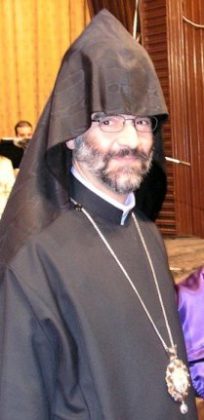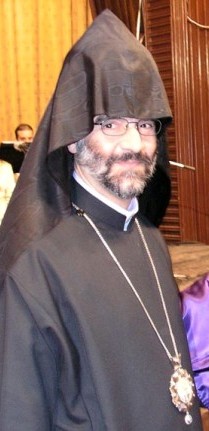
 The Armenian Church participated in the Synod of Bishops for the Middle East in Vatican (10 – 24 October 2010) with the participation of more than 200 bishops from Islamic countries.
The Armenian Church participated in the Synod of Bishops for the Middle East in Vatican (10 – 24 October 2010) with the participation of more than 200 bishops from Islamic countries.
Panel discussions dealt with the difficulties and dangers the Christians face in Islamic countries including human rights issues, economic hardships, refugee plight, etc.
In the past months increasing number of articles and reports in Arab media refer to the fate of the Christians in the Arab and Islamic world, some going as far as predicting the disappearance of the Christians in few decades.
It is a fact that a hundred years ago the percentage of Christians in the Arab World was about 20% of the total population but the current percentage is less than 4%. One of the recent tragedies have been the exodus of the Iraqi Christians, facing now poverty and economic hardship in neighbouring countries like Syria, Lebanon, Jordan, etc., with tens of thousands of them already transferred to third countries.
Pope Benedict XVI's final message and list of proposals fell short to address the grievances and remained in the circle of generalities like rights of citizenship, freedom of conscience and worship, etc. “Peace is possible. Peace is urgent,” the Pope said, expressing the belief that Peace will stop Christians from emigrating.
The Palestinian-Israeli conflict dominated in some discussions, without giving much space to real issues facing the Christians. The Synod Message and 44 propositions will be issued in the future in separate document by the Pope.
His Grace Bishop Shahan Sarkissian, Prelate of the Diocese of Aleppo (Syria) represented the Catholicosate of Cilicia in the Synod meetings and in the work of the committees. He delivered Catholicos Aram I's message related to his views on the way churches in the Middle East could help their believers to stay in the region. According to the Catholicos, Middle East churches should work more closely towards unity, find new ways of cooperation and mutual support, and promote interռreligious dialogue particularly with Islam.
Compiled by Azad-Hye
